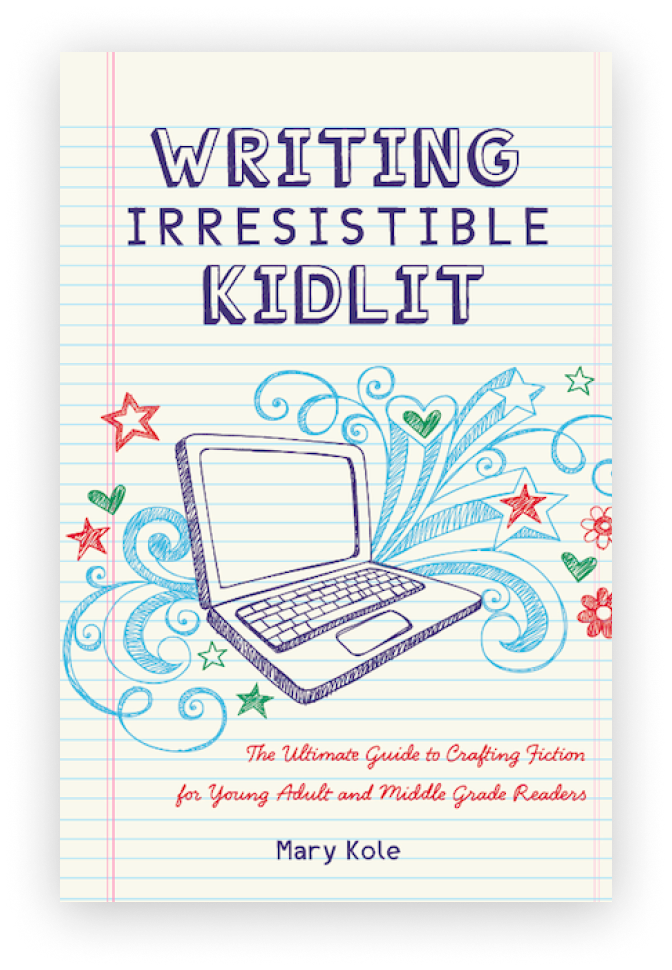Rock Your Manuscript
Without Overwriting
By Mary Kole
Mary Kole is a former literary agent, freelance editor, writing teacher, author of Writing Irresistible Kidlit, and IP developer for major publishers, with over a decade in the publishing industry.
Writing is a creative endeavor, but overwriting is compensation that you should avoid if you want to be taken seriously. Whenever you have too much of a good thing, it can become overwhelming. Overwriting is a flowery quality to writing that can actually get in the way of writing voice and clarity. You should never prioritize writing style over writing substance, especially when it comes to communicating clearly. Knowing how to avoid overwriting can help you communicate your message more effectively. Let’s explore some helpful tips on how to prevent yourself from going overboard with overwriting.
Be Concise to Avoid Overwriting
Good writing does not have to be verbose to be effective. In fact, being concise with your wording is often more effective than adding extra words just for the sake of filling up space (unless you’re writing a college essay and need to meet a minimum word count—we all know that trick)!
The goal should always be clarity above all else. If something on the page doesn’t need to be said, don’t say it! Keep in mind that sometimes less is more when it comes to avoiding overwriting.
If you find yourself getting carried away with your writing, take a step back and reassess what needs to be said. If you can’t figure out whether you need to kill some darlings, run your writing by a beta reader, critique group, writing workshop, or freelance editor.
Getting feedback from someone who’s new to your writing can help you spot areas of overwriting. It can also help if you read through your work out loud. If something sounds awkward or confusing when spoken aloud, chances are it won’t make sense when read, either. Pay attention to any sentences or sections where there might be too much information and consider cutting those back in order for things to flow better overall. (Reading your work aloud is also a great way to develop your writing voice.)
Remove Overwriting as You Go
When writing a story, it is important that you make time for self-editing and revision as you go along. This will help ensure that what you write is concise and easy to read, without blatant overwriting. Remember to take the temperature of your prose and aim for simplicity and clarity. You can absolutely use imagery and other writer tools of the trade, but keep asking yourself: Is this writing, or overwriting? Are you trying too hard to come across as a Writer With a Capital W?
Take breaks between paragraphs or sections, as this can help you remain grounded as you edit. By omitting instances of overwriting as you go along, and taking breaks between sections, you are able to look at each sentence or paragraph with fresh eyes and make sure that it’s coming across as intended in your authentic voice. This will also help prevent unnecessary sentences or phrases that might confuse readers or contribute to overwriting. Redundancy is a major issue in creative writing, so trust that you’re coming across to readers. This involves trusting that you’ve done your job, which can nip overwriting in the bud.
Overwriting Considerations
It’s easy for beginning writers to see purple prose full of overwriting as impressive. But if you’re wondering how to get a literary agent and pursue your writing in a more professional way, you need to know that overwriting is considered the mark of an amateur scribe. Remember that you don’t need to work so hard to come across. All that sweaty effort tends to stick out as obvious on the page, especially to experienced readers.
When you’re first getting started, avoiding overwriting can seem like an impossible task, but with practice and dedication, anyone can learn how to write clearly and effectively without making their message convoluted.
Editing as you go along, being concise with your wording, and knowing when enough is enough are all great ways of ensuring that readers avoid feeling overwhelmed by excess information. Eliminating overwriting helps your storytelling shine through, and that’s what it’s all about—what you’re saying, not how you’re saying it. You can be infinitely creative and communicative without overwriting, you just need to trust yourself.

Click here to purchase Writing Irresistible Kidlit, my book on fiction craft for MG and YA novels, out from Writer's Digest Books. This will show you my writing craft philosophy and give you lots of valuable advice, including tips for the novel revision process and self-editing. There are over 35 example novels cited and discussed throughout. It’s a valuable resource for any writer’s toolkit.
Click here to purchase Irresistible Query Letters, my book on query letters, including over forty examples with comprehensive notes on each one. There’s a ton of submission advice, best practices, and insider information in these pages, and you’ll really enjoy seeing what other writers are doing in the slush.
Click here to purchase Writing Interiority: Crafting Irresistible Characters, my book on interiority and character creation. Explore your protagonist’s thoughts, feelings, reactions and interpretations, expectations, and inner struggles to create a rich, immersive experience. This guide will empower you to create characters who live and breathe on the page, fostering an unbreakable bond with your audience.





